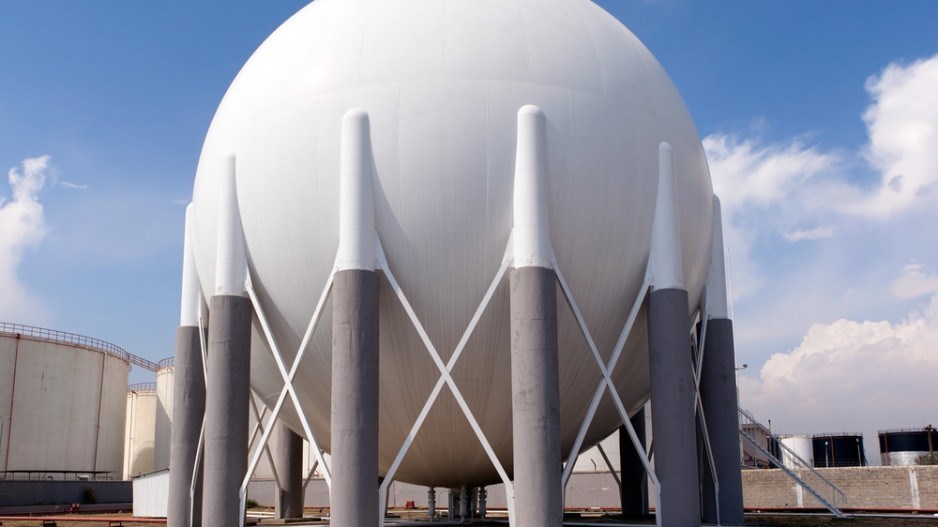Liquefied natural gas (LNG) proponents in British Columbia have been mostly worried about catching up with Australia, but a price differential between global and Northern American gas prices means they also need to worry about competition from the United States, said Scotiabank economist Patricia Mohr.
Mohr commented on the question of gas prices and their impact on B.C.’s LNG aspirations in her monthly commodity price index report April 29.
A harsh winter caused natural gas export prices to spike in February to US$8.78 per mmbtu (million British thermal units) – the highest since July 2008 – before settling back down. Gas export prices are now around US$4.80 per mmbtu.
Even at US$8.78 per mmbtu, North American gas prices are much lower than in Asia (US$16.62 per mmbtu), which is why there is such interest in tapping B.C.’s large reservoirs of natural gas and liquefying it for export.
There are more than a dozen LNG proposals in B.C., but none of the proponents have yet announced any long-term contracts with Asian buyers.
Historically, long-term LNG contracts have been tied to oil prices, and there is a huge price differential between global oil-indexed prices and North American gas prices.
Asian buyers have been holding out for contracts based more closely to the lower North American prices.
Most likely, LNG suppliers in B.C. and their Asian customers will settle on some hybrid pricing model, with some oil indexation but offset by the lower North American gas prices, Mohr said.
“It is going to pull down the price which is ultimately received for the LNG,” Mohr said.
And that could put B.C. LNG at a disadvantage, Mohr said, because high-cost greenfield projects in B.C. would be competing with brownfield LNG plants with lower capital costs in the U.S.
An LNG plant at Ridley Island in Prince Rupert, for example, is estimated to cost $16 billion.
LNG proponents initially hoped the higher oil-indexed prices paid in Asia would justify the return on investment in new LNG plants.
There has been some debate whether the U.S. even planned to allow LNG exports because the U.S. wants to become energy self sufficient. But regulators have been approving LNG export licences in the U.S., which means B.C. may have to worry about competition in the U.S.
Agreeing on long-term pricing for B.C. LNG is being complicated by a delay in finalizing provincial tax and regulatory policies.
“I do think it’s important for B.C. to finalize that regime fairly quickly,” Mohr said.
Industry leaders are hoping to hear an update on those polices next month at the B.C. government’s LNG conference, May 21 to 23.




